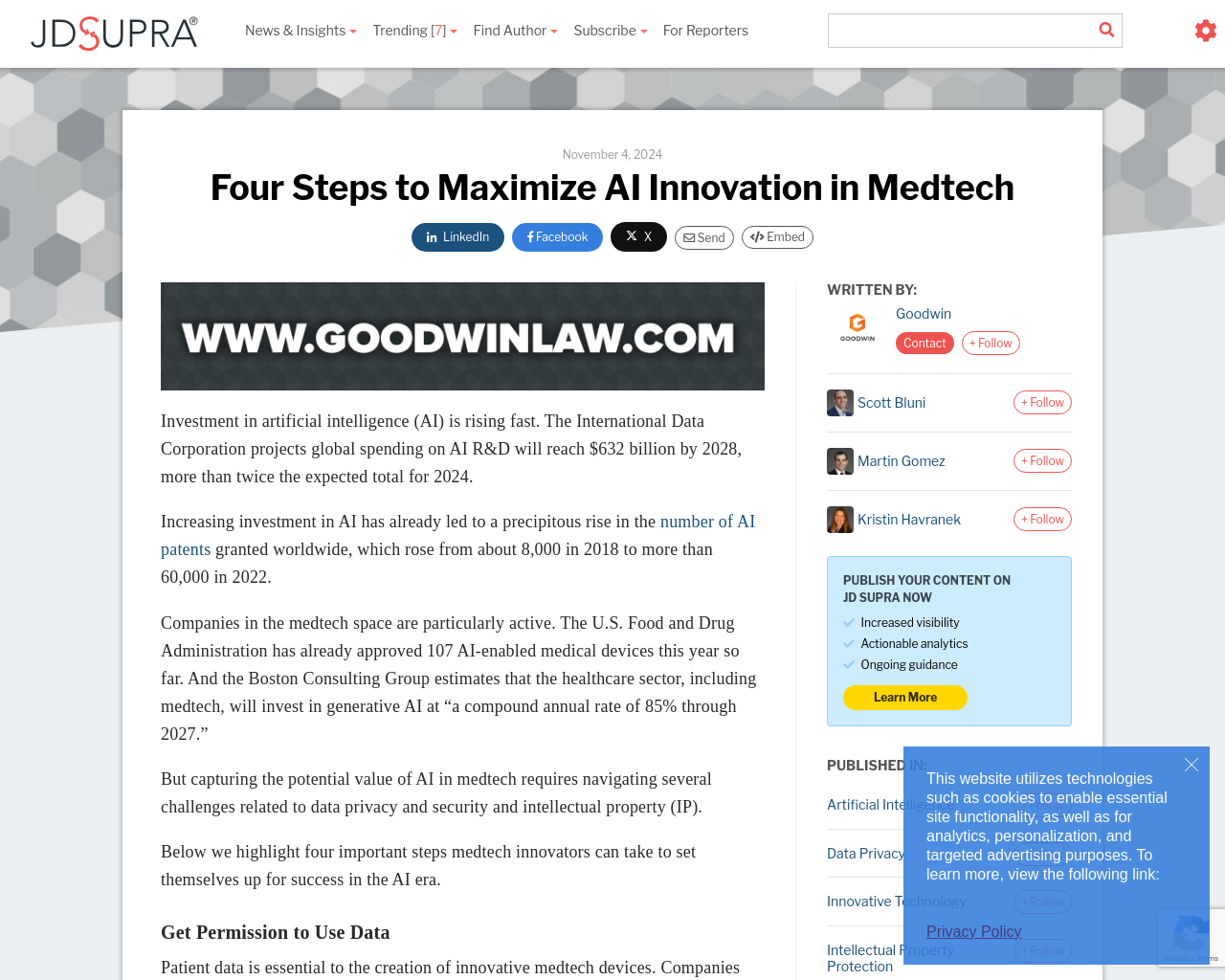Investment in AI is rapidly increasing, with global spending on AI R&D projected to reach $632 billion by 2028. The rise in AI investment has led to a significant increase in AI patents granted worldwide. Companies in the medtech sector are particularly active in AI innovation, with the healthcare sector expected to invest in generative AI at an annual rate of 85% through 2027. However, leveraging AI in medtech comes with challenges related to data privacy, security, and intellectual property.
Key points for medtech innovators to succeed in the AI era include:
– Ensuring compliance with data privacy rules and collecting patient data through consent forms tailored to the data collected.
– Complying with open-source code terms and establishing good practices for using AI-generated code.
– Collecting IP transfer agreements from all contributors involved in developing a medical device, including those guided by AI models.
– Securing IP rights through patents or trade secrets, considering factors like detectability and speed of innovation.
– Addressing patent application challenges for AI-related inventions, such as emphasizing human contributions and proving significant advancements beyond judicial exceptions.
Thoughts:
AI’s impact on medtech innovation is profound, but companies must navigate complex legal and technical landscapes to protect their advancements. Proper handling of data, compliance with open-source code terms, and strategic IP protection are critical for success in the evolving AI medtech industry. Medtech companies must adapt to the challenges posed by AI while capitalizing on its potential to drive innovation and improve healthcare outcomes.
元記事: https://www.jdsupra.com/legalnews/four-steps-to-maximize-ai-innovation-in-1028709/

